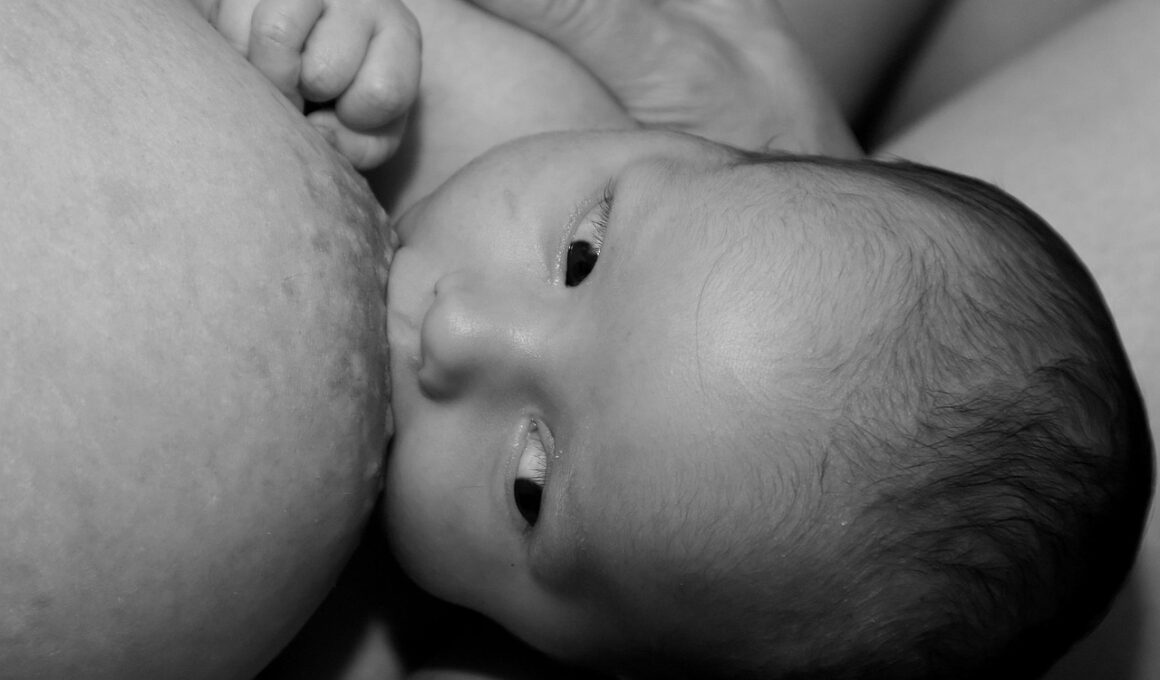Avoid These Postpartum Fitness Errors for a Safe Recovery
Postpartum fitness can be a challenging journey for many mothers, especially when embarking on a workout routine post-delivery. One common mistake is jumping back into high-intensity workouts too soon. Your body goes through a significant transformation during pregnancy, and it takes time to recover fully. Instead of rushing, focus on gentle exercises that help strengthen your core and pelvic floor. Consider starting with walking or light stretching. Engaging in such activities lays the groundwork for more intense workouts in the future. Another crucial aspect is neglecting to listen to your body’s signals. It is essential to understand that every woman’s healing process is unique, and pushing through pain can lead to injuries. Always consult with a healthcare professional before resuming any exercise, ensuring you are ready. Lastly, remember to prioritize your nutrition by consuming a well-balanced diet rich in essential nutrients to aid recovery and energy levels. Incorporating these recommendations will help prevent injuries and ensure a healthier postpartum recovery.
Neglecting Core Strength
One of the most overlooked aspects of postpartum fitness is core strength. Many women think that a few sit-ups will suffice to rebuild their core after delivery. However, it’s crucial to focus on engaging all core muscles gradually. Instead of performing traditional sit-ups, consider modifying exercises that target different muscle groups in your abdomen. Exercises like planks and bridges can be helpful, as they engage lower back and pelvic floor muscles. Incorporating breathing techniques can also enhance core engagement during workouts. Additionally, as you progress, remember to avoid the common mistake of neglecting your back muscles. Strengthening your back helps maintain a balanced physique and prevents discomfort as you strengthen your core. Aim to incorporate exercises that work your entire core area. Take your time and focus on the quality of your workout, rather than quantity. Seek guidance from a qualified instructor if you’re unsure about your technique. Addressing both core and back strength is vital for a holistic approach to postpartum fitness.
Another frequent error women make is disregarding the importance of rest days in their postpartum workout routine. Some mothers feel they must work out every day to regain their pre-pregnancy bodies quickly. However, your body requires adequate recovery time, especially after childbirth. This recovery period is essential for repairing muscles, reducing fatigue, and preventing overtraining. Ignoring your body’s need for rest can lead to burnout or even more serious injuries, such as diastasis recti. Instead of focusing solely on increasing the frequency of your workouts, pay attention to balancing exercise and rest. Aim for a schedule that includes at least one to two rest days each week, allowing your body to recuperate and adapt to your fitness routine. Engage in light activities on these rest days, such as leisurely walks or gentle stretching. This practice not only promotes physical recovery but also provides mental relief, which is equally crucial for overall well-being. By incorporating appropriate rest into your fitness plan, you’ll enhance the effectiveness of your training while supporting your postpartum recovery.
Ignoring Pelvic Floor Health
Many postpartum mothers make the mistake of overlooking their pelvic floor health. This area is critically important for overall fitness and recovery after giving birth. Engaging in exercises like Kegels can help restore pelvic floor strength, improving bladder control and reducing the risk of issues such as pelvic organ prolapse. Start by identifying the pelvic floor muscles, which can be a challenge initially. Focus on tightening these muscles slowly and consistently, holding for a few seconds before releasing. It’s essential to incorporate pelvic floor exercises into your routine before diving into more intensive workouts. Ignoring this aspect of postpartum fitness can lead to discomfort during physical activities and affect overall quality of life. Remember, building pelvic floor strength is a gradual process but contributes significantly to recovery and supports your core muscles. Additionally, combine these exercises with deep breathing techniques for the best results. Prioritize pelvic floor health to ensure a well-rounded approach to your postpartum fitness journey.
Another common mistake is inadequate hydration. Many women may focus heavily on portion sizes or specific diets, neglecting to drink enough water throughout the day. Hydration plays a vital role in recovery and overall health during the postpartum phase. After childbirth, your body needs extra fluids to support milk production and replenish lost fluids. Aim to drink at least eight to ten glasses of water daily, adjusting this number based on your activity level. Carry a water bottle with you to encourage regular sips throughout the day. Consider incorporating hydrating fruits and vegetables into your diet, such as cucumbers, oranges, and watermelon. Proper hydration not only supports energy levels but also improves muscle recovery and helps mitigate feelings of fatigue. Additionally, staying hydrated can significantly benefit your skin and support weight management goals. Pay attention to your body’s hydration needs and make it a priority as you navigate your postpartum fitness journey. Drinking sufficient water will complement your overall wellness, helping you feel your best both physically and mentally.
Setting Unrealistic Goals
Setting and pursuing fitness goals is a crucial component of any workout routine. However, many new mothers make the mistake of setting unrealistic or overly ambitious goals soon after giving birth. Such expectations can lead to frustration and disappointment if progress isn’t aligned with anticipated timelines. Instead, embrace smaller, achievable goals that recognize your body’s timeline for recovery. Consider setting targets that are not solely based on physical appearance but also include functional strength and endurance milestones. Focus on goals related to your daily activities, such as improving energy levels or regaining the ability to lift your baby comfortably. Celebrate these successes as they contribute to your overall physical and mental health. Acknowledge that postpartum recovery is a gradual journey, not a race, and prioritize consistency over perfection. Surround yourself with positive support that encourages your progress, whether through family or a fitness group. By adjusting your perspective and expectations, you will foster a healthier, more sustainable relationship with fitness in your postpartum life.
Lastly, it’s important to recognize that ignoring mental health is a significant error in postpartum fitness. The emotional and mental aspects of recovery are just as critical as physical fitness. Many new mothers face emotional challenges, and addressing these feelings should be an integral part of your wellbeing. Engage in activities like meditation or gentle yoga, which can help reduce stress and anxiety and promote mental clarity amid the demands of motherhood. Finding time for self-care, even in short increments, is essential for maintaining emotional stability. Consider connecting with other mothers to share experiences and resources or seek professional support if you feel overwhelmed. Mental health management can enhance your physical health journey, motivating you to stick to your fitness regimen. Create a balance between physical activity and emotional wellness to foster resilience throughout your postpartum experience. Remember that caring for your mind is just as vital as caring for your body during this transformative period.
In conclusion, avoiding common postpartum fitness errors is vital for a safe recovery. By recognizing and addressing issues such as neglecting core strength and pelvic floor health, ensuring adequate rest, and setting realistic goals, mothers can nurture their bodies effectively. Stay hydrated and prioritize mental well-being as part of your fitness regimen. Remember, each woman’s postpartum journey is unique, and giving yourself grace during this process is paramount. Embrace small victories and be patient with your progress, focusing on nurturing both body and mind. Establish a supportive environment with friends, family, and fellow mothers, as it can significantly enhance your experience. Stay informed and educated about postpartum health by consulting with fitness professionals and medical experts. They can provide personalized guidance tailored to your specific needs. The road to postpartum fitness may seem challenging, but with the right mindset and approach, you can achieve your goals. Ultimately, prioritize your health and well-being for a sustainable recovery that lays the foundation for a fulfilling motherhood experience.


